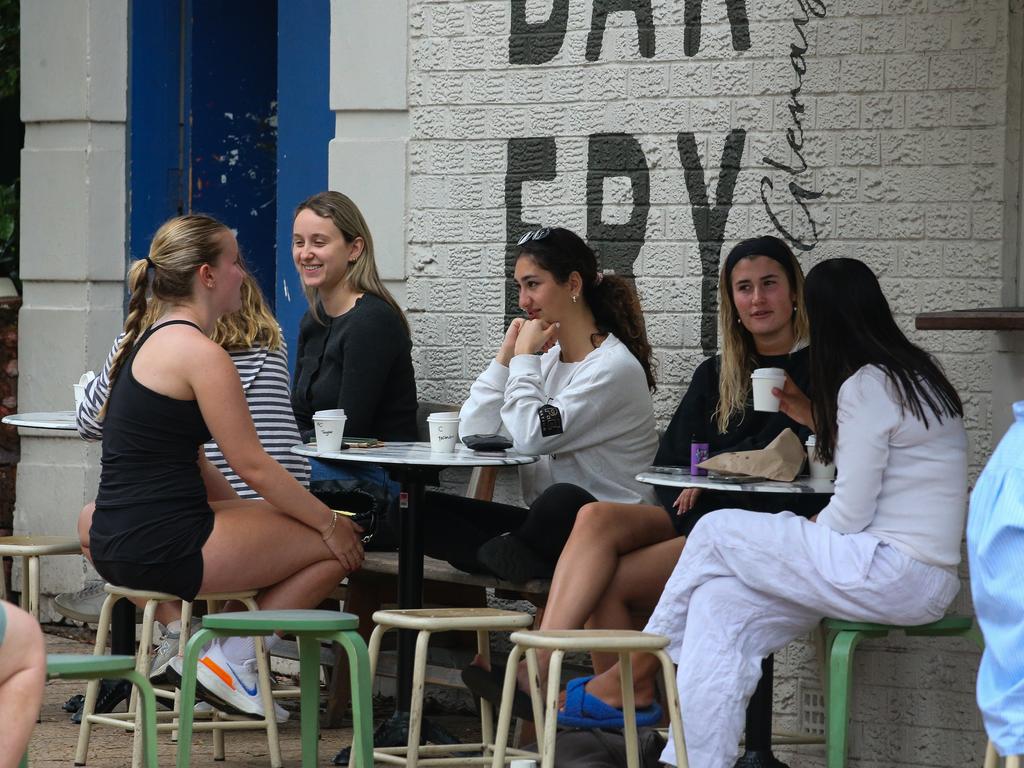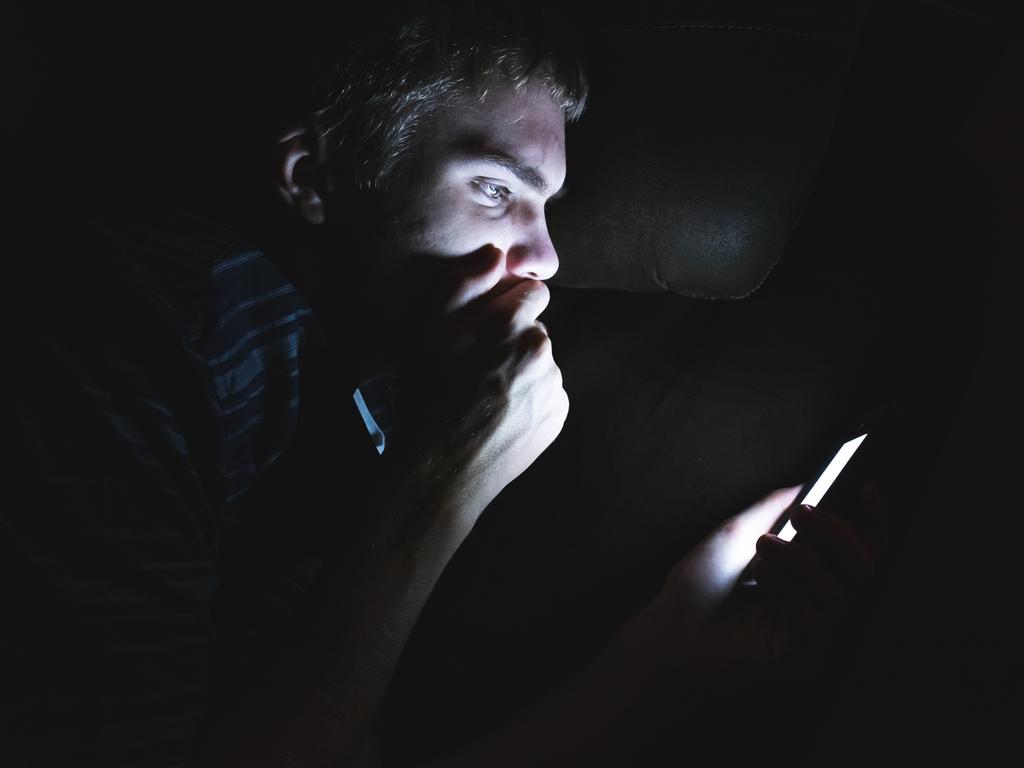‘Difficult to escape’: Half of all young Australians struggling to cope with anxiety
They’re our nation’s best and brightest, but half of all young Aussies are fighting a crippling daily struggle – and they don’t know what to do about it.
Half of all young Australians are feeling crippled in their everyday lives by what experts call a “natural human emotion” – and they don’t know what to do about it.
Research by News Corp’s Growth Distillery with Medibank found that approximately one in three Australians are experiencing some form of negative emotion or feelings on a weekly basis, largely driven by financial burdens. Given the ongoing cost-of-living crisis, 48 per cent of the population across all demographics cited this as their biggest daily stressor.
Close behind, 46 per cent of respondents reported stress, and 41 per cent anxiety, as the most negative influences on their mental health, reflecting the general mental strain being experienced by many.
It’s young Australians – a whopping 51 per cent of Gen Z respondents – who exhibit the latter feeling the most.
Australia is in the grips of a mental health crisis, and people are struggling to know who to turn to, especially our younger generations. Can We Talk? is a News Corp awareness campaign, in partnership with Medibank, equipping Aussies with the skills needs to have the most important conversation of their life.
According to mental health professionals, it’s normal to feel anxious from time to time - it’s our brain’s way of responding to perceived threats, activating the fight, flight or freeze response to help us stay safe.
Yet statistics have routinely shown the mental health of our nation’s youngest has been in decline for more than a decade. In 2007, 26 per cent of 16- to 24-year-olds had a mental illness. By 2021, the rate had increased to 39 per cent.
Anxiety is no longer a fleeting, occasional feeling. For Gen Z, it’s become a permanent state of mind.

Myriad “environmental stressors” have fuelled the rise in mental health difficulties for younger people, headspace manager of clinical advice and governance, Caroline Thain, said.
The “educational, emotional and social disruption” wrought by the coronavirus pandemic during foundational years of their lives cannot be underestimated.
“They’ve also had to navigate the complexities of social media, job insecurity, rising living costs, and limited access to affordable housing,” Ms Thain said.
“Living in a digital world also means young people are more exposed to global events, conflicts and natural disasters.”
More than three in five (69 per cent) of respondents agreed both that young adults today experience more difficulties with their mental health compared to earlier generations, and that navigating life in 2025 involves a wider and more intense set of challenges than those faced by their predecessors.
Every generation has endured its fair share. What’s different today, Black Dog Institute head of child mental health research, Professor Jennie Hudson, said, “isn’t necessarily the presence of stressors, but how we’re responding to them”.
“Young people are growing up in an environment where stress is more visible, more constant, and more difficult to escape,” Prof Hudson explained.
“The digital world means they’re exposed to global crises, social comparison, and performance pressure around the clock.”
Gen Z may be more susceptible to anxiety, but, unlike their predecessors, they’re also more aware of what it is, “which is a positive shift”, Prof Hudson said.
“The challenge is that while we’re more open about anxiety, we haven’t yet fully equipped young people with the tools to manage it,” she said.

Ms Thain agreed that young Australians are “increasingly literate” in understanding mental health and open to discussions about their emotional wellbeing.
But “knowing what to do doesn’t always make it easy”, she said. “Barriers like stigma, cost, long wait times or fear of not being taken seriously can still stand in the way.”
What’s “really scary”, clinical psychologist Amanda Gordon said, is that as a result of such obstacles, almost two in three Australians turn to social media, not trained professionals, for answers.
These informal, peer-driven platforms present a seemingly endless reserve of mental health and wellbeing information, with 49 per cent and 44 per cent of Gen Zers favouring Instagram and TikTok, respectively, as their primary source of such intel.
“They don’t like engaging with people of different generations, so they’re not going to go to their parents or even others they trust in their lives,” Ms Gordon said.
“They’ll ask people like them – and the people like them may have just as little information about how to manage it as they do.”
This is despite almost one third of Gen Z respondents reporting negative impacts of extensive social media use, attributing their increased feelings of stress and anxiety to doomscrolling – reinforcing “the belief that the world is unsafe” via the repetitive consumption of negative news – and comparing themselves to others.
Though social media can be a powerful tool for information, connection and self-expression, it also has a “darker side”, Prof Hudson said, and can interfere with a young person’s ability to switch off, relax, and – critically – get enough sleep.
“For some young people, social media can become a way to avoid real-life challenges,” she said.
“This kind of avoidance can prevent them from learning that many of the situations they fear are actually manageable, and that they’re capable of coping – even if things don’t go perfectly.”
Ms Gordon suggested that older generations had failed to teach young people “that it’s OK to have a whole range of emotions, including stress and anxiety, in our day”.
“We are very busy destigmatising mental illness – which is great and important, and it’s really important that people can talk about their feelings – but we’re not teaching people that it’s OK sometimes to not feel OK, and it doesn’t mean that something terrible will happen,” she said.
“We have to learn to have normal reactions of sadness or worry or anxiety when something is going on in our life.”
With the right support, Prof Hudson said, young Australians can “learn to understand anxiety, face it, grow from it and live with it”.
“Fears and anxieties – especially when based on distorted thinking – can grow out of proportion when they’re kept inside and not shared,” she said.
“Left unspoken, they can take on a life of their own. What matters most is how we respond once we notice them. We need to shift the conversation from, ‘How do we stop anxiety?’ to ‘How do we help young people respond to it in ways that build confidence?’”


Though it can be difficult to know where to start when seeking help, “talking to a trusted adult, friend or mental health professional can help test out worries and decide what’s worth avoiding – and what can be faced with support”.
Avoidance – even if it does feel like a “natural response” – isn’t the solution, Prof Hudson added.
Not only does avoiding a problem often make it worse; it can also rob us of a valuable lesson: “(That) most of the time, bad things don’t happen. And even if they do, we can cope.”






